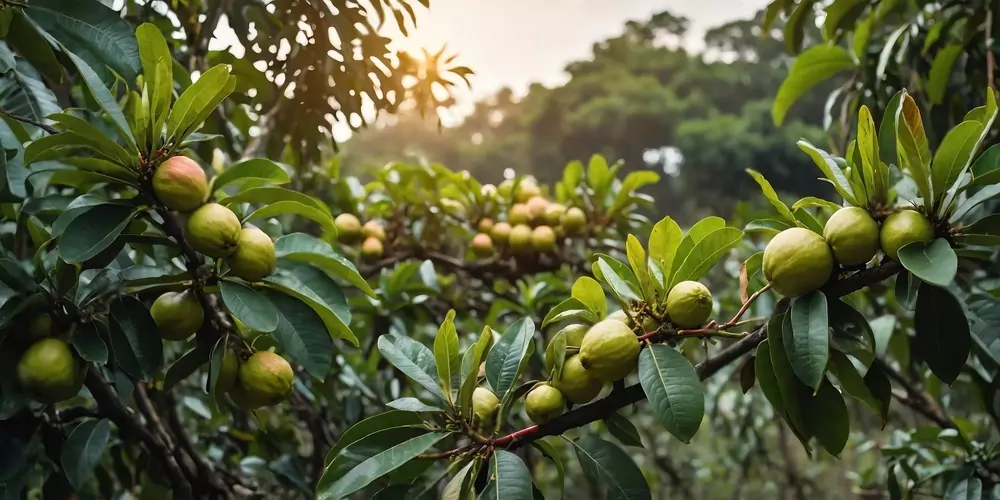Koyya Maram
The Guava tree, scientifically known as Psidium guajava and known as "Koyya Maram" in Tamil, is a small, tropical fruit tree widely cultivated for its delicious fruit and medicinal properties. Native to Central America but now grown in tropical and subtropical regions around the world, the guava tree is highly valued for its nutritional benefits and is commonly used in traditional remedies.
The Guava tree typically grows between 3 to 10 meters (10 to 33 feet) in height and has a smooth, light-colored bark that often peels. Its leaves are large, leathery, and aromatic, while the fruit varies from round to oval with a green, yellow, or pinkish skin when ripe. The flesh inside can be white, pink, or red, containing numerous small, edible seeds.
Benefits of the Guava Tree
- Rich in Nutrients: Guava is packed with essential vitamins, particularly vitamin C, which strengthens immunity. It also contains dietary fiber, potassium, and antioxidants, making it a nutritious fruit.
- Digestive Health: Coconut oil, derived from the flesh, has antimicrobial properties that may support gut health and aid digestion.
- Blood Sugar Control: Some studies suggest that guava may help regulate blood sugar levels, making it beneficial for individuals with diabetes.
- Heart Health: The potassium and antioxidants in guava support heart health by helping lower blood pressure and reduce cholesterol levels.
- Skin Health: Guava's high antioxidant content helps protect the skin against aging and damage from free radicals. Applying guava leaf extract is also believed to benefit skin conditions like acne.
Traditional Uses of the Guava Tree
- Medicinal Tea: Guava leaves are commonly used to make a herbal tea, which is used to manage blood sugar, promote digestive health, and provide antioxidant support.
- Topical Applications: Crushed guava leaves are applied to the skin to help heal minor cuts, reduce inflammation, and soothe skin irritations.
- Culinary Use: Guava fruit is eaten fresh or used in jams, jellies, smoothies, and desserts. It can also be made into juices and sauces.
